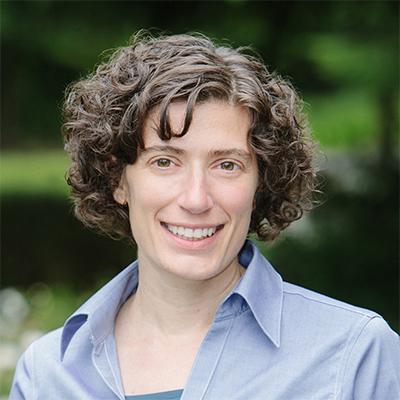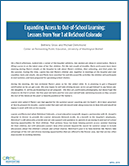This brief provides an initial, formative assessment of lessons learned in the first year of ReSchool Colorado’s initiatives to expand access to out-of-school learning opportunities for children in the Denver area. We focused on families’ expectations for out-of-school time, availability of programs across communities, and equitable access.
Early Findings
ReSchool partners with families to build their capacity to navigate expansive systems of learning and aims to eliminate barriers to accessing out-of-school learning opportunities. The expectation is that, with agency, information, resources, and opportunity, parents and children will curate learning experiences that develop the child’s identity, as well as academic, social, and personal competence (while hopefully having fun in the process). In the first year of implementation, we found that:
- There is a gap between what Denver-area parents seek and what is available in summer learning opportunities. Parents prioritize enrichment and opportunities while program offerings tended to emphasize academic preparation.
- Children in a few low-income neighborhoods had far fewer opportunities nearby than did their peers in more affluent neighborhoods, despite the fact that ReSchool uncovered and shared information on a large number of summer learning opportunities in the Denver area.
- ReSchool’s efforts to provide information and one-on-one support to families seemed to help families overcome critical barriers to accessing summer learning.
Looking Ahead
ReSchool’s early successes should be encouraging to anyone favoring expansive learning opportunities available inside and outside of school. But our findings also highlight the need for dedicated resources and structural solutions to support families at scale. Greater public—and possibly private—investment are needed to expand out-of-school programming and supports to low-income families and to ensure that the programming meets their needs. Over the next year CRPE will continue to partner with ReSchool to observe the expansion of the ReSchool’s initiatives, but also to follow the conversations and progress made on moving the initiatives toward sustainability and scale.





